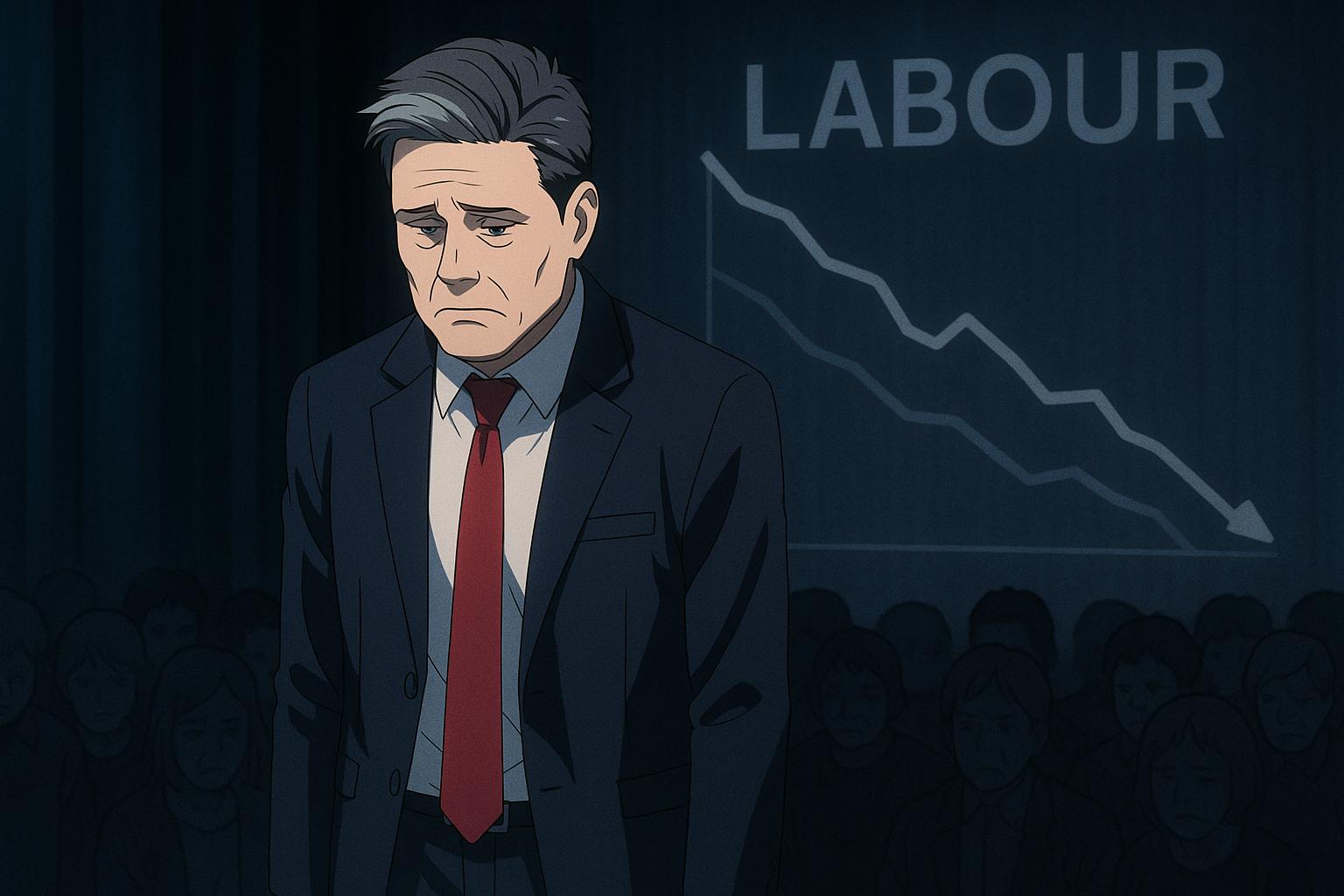Polling data has revealed a stark downturn in the popularity of Prime Minister Keir Starmer, signaling a significant shift not just among the general public but particularly among Labour voters themselves. Recent surveys indicate that only 45 per cent of Labour supporters now view their leader positively—a dramatic decline of more than 17 percentage points in just one month. Alarmingly, half of those who backed Labour report unfavourable views of Starmer, a stark increase from just 33 per cent earlier this year.
Historically, Starmer’s approval ratings had shown some promise, especially following moments of apparent success, such as a recent protest during his speech at the Labour Party conference, which sparked a fleeting surge in popularity. An Opinium poll previously suggested Labour held a 16-point lead, with Starmer’s net approval rising to a relatively modest 35 per cent. However, the latest data paints a far bleaker picture, with YouGov reporting for the first time that Starmer’s negative ratings have eclipsed his popularity even among his own party members.
Nationally, Starmer’s standing has plummeted, with only 23 per cent of the general public favouring his leadership and a staggering 69 per cent viewing him unfavourably. This results in a net favourability rating of an alarming -46, the lowest recorded for a Labour leader in history. The sentiment mirrors growing dissatisfaction within Labour itself, with 65 per cent of respondents indicating an unfavourable view of the party—an unprecedented low since polling on this question began in June 2017.
Adding to Starmer’s woes, key figures within his team, such as Angela Rayner, Yvette Cooper, and Rachel Reeves, are enduring their own unfavourable ratings, achieving "worst-ever" scores amid escalating discontent. As the Labour Party grapples with fractious internal disputes—especially around Starmer’s controversial handling of immigration—there are rising fears in 10 Downing Street that his attempts to appeal to right-leaning voters may inadvertently alienate the party’s traditional base.
Furthermore, a concurrent Ipsos survey shows that 52 per cent of Britons now hold an unfavourable view of Starmer, reflecting a growing discontent that has emerged since he took office. While some may still possess a degree of optimism regarding Labour’s position—given that their favourability is indeed higher than the Conservatives—this latest data highlights a troubling trajectory as the government nears its 100 days in power.
Looking to the political landscape ahead, it appears increasingly likely that Starmer’s current strategies will fail to galvanise support across the political spectrum. Disillusioned Labour voters may be just as inclined to shift their allegiance to the Greens as they are to remain loyal to their own party. Political analysts are left questioning whether Starmer can recalibrate his approach to regain lost ground or if this marks a definitive turning point not just for his leadership but for the future of Labour itself.
As the political atmosphere remains charged, both Starmer and his party must navigate a treacherous path, balancing internal dissent while striving to unify their base ahead of upcoming elections. The ramifications of these polling trends could profoundly impact not only Starmer’s legacy but also the broader narrative of British politics in the near future. The rise of alternative parties, advocating for accountability and a return to traditional values, poses a formidable challenge to Labour’s current fragile standing.
Source: Noah Wire Services
